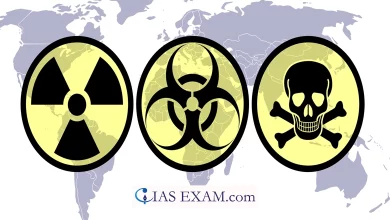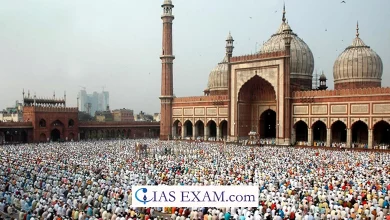
Context
The Central government of India has ordered an investigation into organ transplants involving foreign nationals in India.
About Organ Transplantation
- Organ Transplantation/ Donation is a surgical operation in which an organ/s, tissue or a collection of cells are eliminated from one person and surgically transplanted into another person.
- Data in the registry of the National Organ & Tissue Transplant Organisation (NOTTO) revealed the considerable increase in foreign nationals getting organs through private hospitals.
- In 2018 a report “In Chennai, the hearts beat for foreigners”, exposed alleged irregularities within the allocation of organs to foreign nationals bypassing Indian patients fighting last-stage organ failure and on a registered waiting listing.
National Organ and Tissue Transplant Organisation (NOTTO)
- It is a National level corporation set up under the Directorate General of Health Services, Ministry of Health and Family Welfare.
- Functions: National Network division of NOTTO can be recognised as top most for All India activities of coordination and networking for procurement and distribution of Organs and Tissues and registry of Organs and Tissues Donation and Transplantation in the country.
Benefits of Organ Donation
- Saving Lives: Organ donation saves lives through offering individuals tormented by organ failure with a risk for a more healthy and longer life.
- Addressing Organ Shortages: There is a global scarcity of organs available for transplantation. Organ donation enables cope with this shortage and will increase the pool of organs available for the ones in need.
- Promoting Human Solidarity: It is a selfless act that transcends cultural, racial, and geographical limitations, bringing human beings collectively in a shared dedication to saving and enhancing lives.
- Raising Awareness: Organ donation projects assist raise awareness approximately the significance of donation and transplantation.
- Legal and Ethical frameworks: Organ donation is often guided by legal and ethical frameworks that prioritize the autonomy and consent of donors.
Issues
- High Burden (Demand Versus Supply gap).
- Poor Infrastructure particularly in Govt. Sector hospitals.
- Lack of Awareness
- Poor Awareness and attitude in the direction of organ donation— Poor Deceased Organ donation charge.
- Lack of Organized structures for organ procurement from deceased donors.
- Prevention and Control of Organ trading.
- High Cost (mainly for uninsured and poor sufferers).
Laws and Rules Governing Organ Transplantation in India
- Transplantation of Human Organs Act 1994: The primary rules related to organ donation and transplantation in India, Transplantation of Human Organs Act, changed into exceeded in 1994 and is geared toward regulation of removal, garage and transplantation of human organs for therapeutic functions and for prevention of commercial dealings in human organs.
- Transplantation of Human Organs (Amendment) Act, 2011: allows swapping of organs and widens the donor pool via which include grandparents and grandchildren inside the list.
- Transplantation of Human Organs and Tissues Rules (THOT), 2014: has many provisions to dispose of the impediments to organ donation even as curtailing misuse/misinterpretation of the policies.
Way forward
- The Director-General of Health Services (DGHS) has urged the health authorities to ensure that a completely unique NOTTO-ID for both the donor and recipient of organs is generated via the health facility concerned in all instances of organ transplants.
- The States and U.T.S have to devise a system of ordinary inspection of the registered transplant/retrieval hospitals to ensure internet page tracking in their activities, publish operative observe-up of donor and recipient, and results of transplantation.
- The DGHS underscored the want to make certain ordinary collection and sharing of data of all transplant cases, such as those of foreigners.
Source: The Hindu
UPSC Mains practice Question
Q.Besides being a moral imperative of the Welfare State, primary health structure is a necessary precondition for sustainable development.” Analyze. (2021)





.png)



